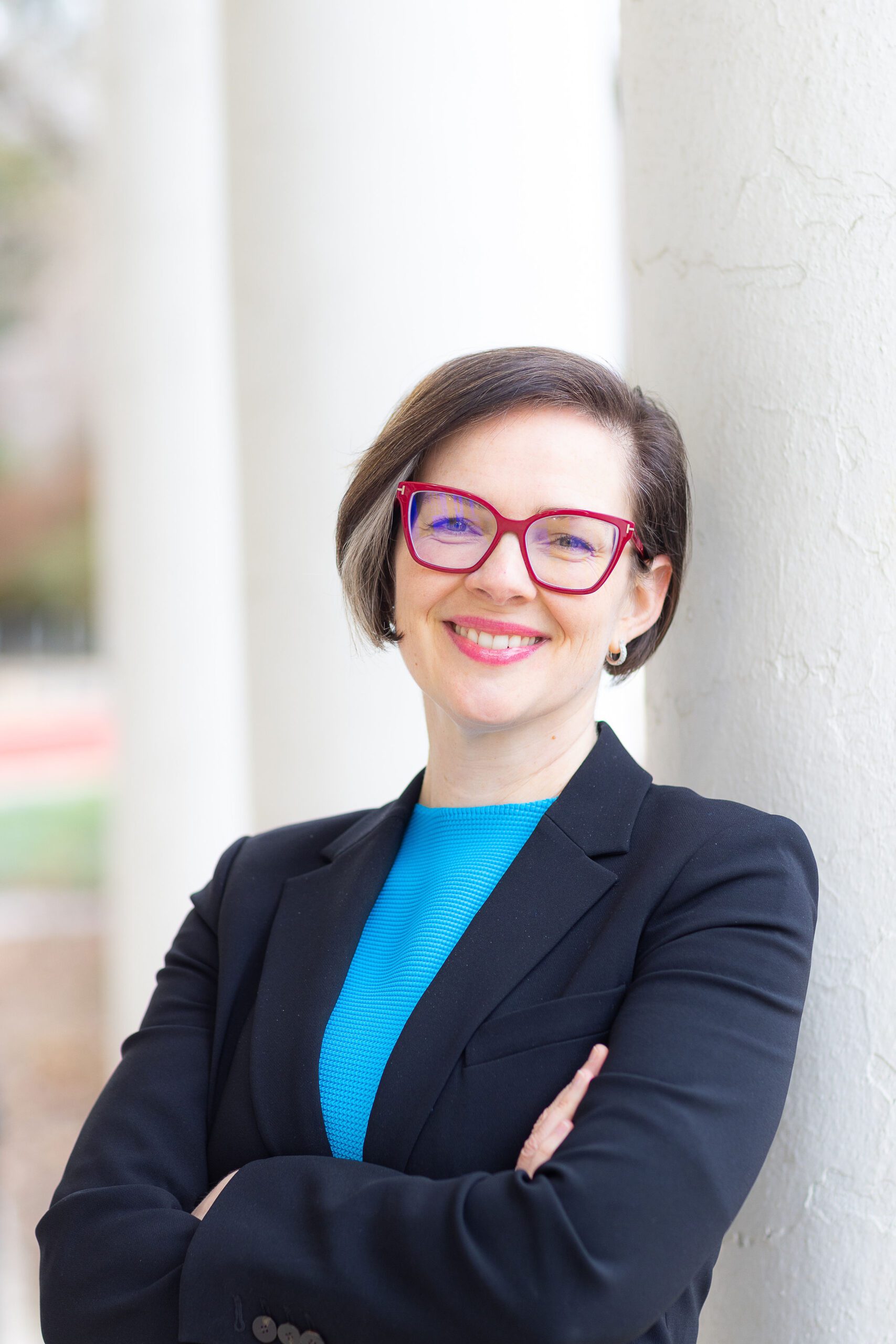Moira O’Neill ’06 Returns to UC Law SF to Teach Law that Shapes Cities and Housing

A 2006 graduate of UC Law SF, Moira O’Neill returns to her alma mater with deep expertise in housing, climate, and land-use law and policy.
- UC Law SF alumna Moira O’Neill has joined the faculty in Fall 2025 to teach environmental, land-use, and property law.
- Her research has driven major housing policy reforms, including state-mandated changes to San Francisco’s permitting system.
- O’Neill brings interdisciplinary expertise at the intersection of land-use law, climate and housing policy, and state and local government law.
When Moira O’Neill steps onto a BART train or sees a child on their way to school, she sees what most people don’t: lives and decisions shaped by law.
“Land-use law shapes neighborhoods and cities,” said O’Neill, an expert on housing and land-use policy. “It can dictate why it takes so long to get from point A to point B, and it influences our most personal life decisions—where we live, how we get to work, and what kind of school our children attend.”
O’Neill is returning to UC Law San Francisco—her alma mater—in Fall 2025 as a professor of environmental law, land-use law, and property law. A 2006 graduate of the law school, she brings deep experience teaching, conducting interdisciplinary research, and informing policy reform aimed at solving the nation’s housing crisis and reducing climate emissions.
“I’m thrilled to come home to UC Law SF,” she said. “This law school opens the legal profession to people from all backgrounds—people who want to make a difference in their communities. Public service is in the DNA of this school.”
O’Neill, who grew up across the bay in Oakland, most recently served as a research professor with a joint appointment in the University of Virginia’s School of Law and School of Architecture. She was also associate director of UVA’s Environmental Institute. Her teaching background spans UVA Law, Columbia University’s Graduate School of Architecture, Planning, and Preservation, and UC Berkeley’s College of Environmental Design and School of Law. She’s also held research appointments at Columbia Law School’s Sabin Center for Climate Change Law and UC Berkeley’s Institute for Urban and Regional Development.
In 2023, O’Neill made headlines when she led a California-funded investigation into San Francisco’s housing approval process. Her team uncovered how the city’s land-use law and planning practices had fostered “process to an extreme”—requiring discretionary review even for small projects like backyard decks, and enabling informal, unwritten conditions that delayed or blocked new construction.
The findings were a wake-up call. Her 94-page report revealed how San Francisco’s permitting policies potentially violated state housing law and discouraged the development of affordable and multifamily housing. In response, California mandated 18 corrective actions, including reforming their approval processes for new housing.
“San Francisco has historically produced some of the most egregious examples of groups misusing environmental review to stall or halt housing—even affordable housing—near transportation—but the city is in a moment of change,” O’Neill said. “My research is all about how land-use law operates in a given place and whether it works to support climate policy, social equity, and thriving communities, and if not, why not.”
O’Neill’s scholarship is grounded in real-world impact. Her empirical work—often done in collaboration with architects, engineers, and urban planners—explores how land-use and environmental laws affect the feasibility of building affordable, sustainable housing. She also studies how these laws affect the clean energy transition. She’s particularly interested in whether communities can design land-use laws that help align climate goals with fair housing mandates.
“Addressing climate change and inequality aren’t separate challenges—they’re deeply connected,” she said. “We need our land-use law to help make it more—not less—possible for people to live in places that are climate-resilient, less disaster-prone, and closer to economic and educational opportunities.”
O’Neill currently serves as a faculty research affiliate at UC Berkeley’s Terner Center for Housing Innovation and Institute for Urban and Regional Development, both in the College of Environmental Design. She also works with a team of engineers, architects, and economists on the Climate Restoration Initiative, a project aimed at reducing climate emissions in Virginia.
At UC Law SF, O’Neill looks forward to mentoring students who are eager to make a difference, whether through working in government, in the public interest, or in private practice.
“I love teaching land-use law because it connects so directly to people’s daily lives,” she said. “Even if students don’t come to law school thinking about land-use law, they quickly realize how much it impacts their communities, their families, their futures.”
She believes teaching should be both practical and inspiring—giving students the tools they need to engage with legal systems that shape urban life while helping them ask fundamental questions about fairness, power, and progress.
“It’s a privilege to help train future lawyers who want to make change,” she said. “I want my students to leave not only with a strong foundation of legal skills, but with the curiosity and confidence to imagine what the law should be.”